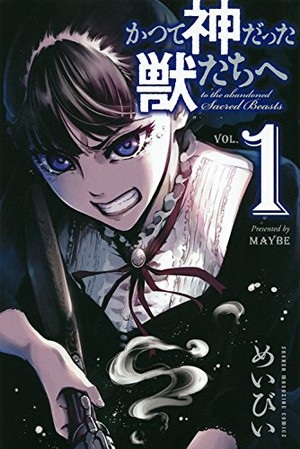Anyway, I haven't done one of these in a few weeks, but it's only for lack of time, not for lack of like and I really like TO THE ABANDONED SACRED BEASTS.
The series is set immediately after the American Civil War in an alternate-history world in which many more states joined the Confederacy than the Union. The Union, out-manned and under-resourced, turned to sorcery to make up the difference, transforming a cadre of elite soldiers into analogues of mythical beasts, which they call the Incarnates. There's a minotaur, a dragon, even the Biblical Behemoth and Leviathan, among others.
No explanation is given for why this is the answer to their problems, or how it was accomplished, but it's unnecessary--at least to jump into the series--because the results speak for themselves. The Union is victorious, the transformed soldiers are heroes, all is good.
Except there's no way to restore the men's humanity. And on top of that, the government now sees them as an embarrassment, essentially thanking them for their service and releasing them into a society that has no place for them.
Worse, many of these soldiers' beastly forms begin to infect their mind, overtaking their humanity and rewriting their personas and making them truly beasts and forcing the government to put them down for the safety of those around them.
Well, our guide to this world is the daughter of one of the Incarnates--the dragon--who was put down relatively early on, after succumbing to his physicality's nature. She seeks revenge, not understanding why her father had to die after sacrificing everything for his country and its people. But after meeting the government's leading Incarnate hunter, the man directly responsible for her father's death, she learns it's not all black and white.
I know my description of this scenario may sound a little cheesy, but trust me, that's all me; I can't really do this series justice. You've got to read it. It's a fantastic dark fantasy that swiftly turns everything you expected from it on its head by the end of the very first chapter. More than that, it makes important commentary on how modern society treats veterans and especially how those who have sacrificed their bodies and minds, those who are irreparably damaged, are seen by those responsible for them as little more than an inconvenience, an embarrassment and a reminder of a period they want to forget about.
That's an important discussion that needs to be had. If it needs to be had through entertainment, so be it, because this is the kind of entertainment that deserves a wider audience. It really is that good.


 RSS Feed
RSS Feed